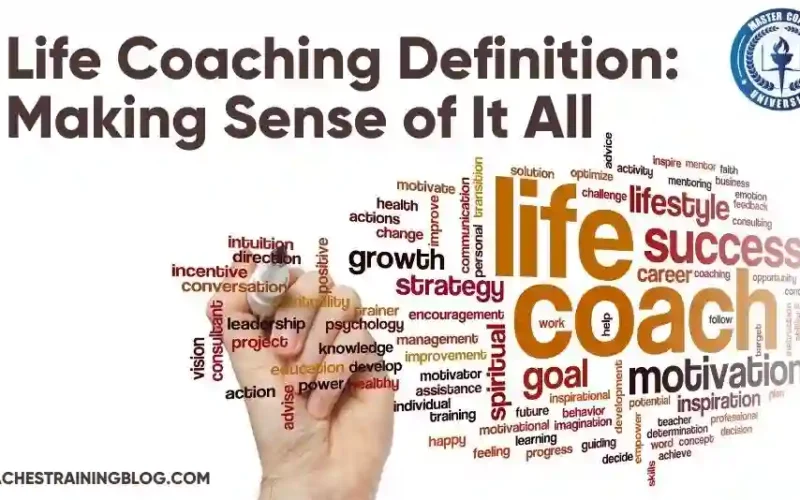Decisions, decisions, decisions – our lives are an intricate tapestry woven together by the choices we make. From the seemingly insignificant daily choices to the life-altering ones, decision-making is an integral part of the human experience. Life coaching, with its focus on personal development and growth, offers valuable insights and strategies to help individuals master the art of decision-making. In this comprehensive guide, we will explore the profound role of life coaching in enhancing decision-making skills and empowering individuals to make choices that align with their goals and values.
The Significance of Decision-Making
Before delving into the world of life coaching, it’s crucial to recognize the significance of decision-making in our lives:
- Empowerment: Decisions empower us to take charge of our lives and shape our future. They allow us to move from a state of passivity to one of active participation.
- Goal Achievement: Decision-making is instrumental in achieving our goals. It involves choosing the actions and steps that will lead us closer to our desired outcomes.
- Self-Expression: Our decisions reflect our values, priorities, and desires. They serve as a means of self-expression, allowing us to live authentically.
- Problem Solving: Decision-making is a problem-solving process. It involves assessing situations, considering alternatives, and choosing the most suitable course of action.
- Personal Growth: The choices we make, especially in the face of challenges, contribute to personal growth and resilience. They are opportunities for learning and development.
The Role of a Life Coach in Decision-Making
Life coaches are professionals trained to assist individuals in personal and professional development. They recognize that effective decision-making is a fundamental skill for achieving goals and experiencing fulfillment. Here’s how they help clients enhance their decision-making abilities:
- Clarifying Values and Goals: Life coaches work with clients to clarify their values and set clear goals. This foundation helps individuals make decisions that align with their core principles and desired outcomes.
- Identifying Limiting Beliefs: Limiting beliefs and fears can cloud decision-making. Life coaches help clients identify and challenge these beliefs, enabling them to make choices from a place of empowerment rather than fear.
- Assessing Options: Decision-making often involves considering multiple options. Life coaches guide clients in evaluating the pros and cons of each choice, weighing potential risks and benefits.
- Prioritization: Life coaches help clients prioritize their goals and choices. This process ensures that decisions are aligned with overarching objectives.
- Risk-Taking and Courage: Making important decisions can be daunting. Life coaches encourage clients to embrace risk-taking and cultivate the courage to make choices that may lead to personal growth and fulfillment.
- Mindfulness and Presence: Mindfulness practices enhance decision-making by helping individuals stay present and attuned to their intuition and inner wisdom.
- Emotional Regulation: Decision-making is influenced by emotions. Life coaches teach clients emotional regulation techniques, enabling them to make decisions from a place of emotional balance.
- Accountability and Support: Life coaches serve as accountability partners, helping clients stay committed to their decisions. They provide support and encouragement throughout the decision-making process.
- Resilience Building: Life coaches teach resilience-building techniques that empower clients to bounce back from setbacks and learn from their decisions.
- Action Planning: After making a decision, it’s crucial to create an action plan. Life coaches assist clients in breaking down their choices into actionable steps.
Case Study: Transforming Decision-Making with Life Coaching
Let’s explore a real-life scenario where life coaching played a pivotal role in transforming decision-making:
Client Profile: Lisa, a 32-year-old marketing manager, was facing a career crossroads. She had been offered a challenging new job opportunity but was torn between accepting it and staying in her current role, which was more comfortable but less fulfilling.
Life Coaching Journey:
- Clarifying Values and Goals: In her coaching sessions, Lisa worked with her coach to clarify her values and long-term career goals. She realized that personal growth and career fulfillment were top priorities.
- Identifying Limiting Beliefs: Lisa had a limiting belief that she was not capable of handling the new role. Her coach helped her challenge this belief and recognize her skills and strengths.
- Assessing Options: Lisa and her coach carefully assessed the pros and cons of both job opportunities. They considered factors such as growth potential, work-life balance, and alignment with her values.
- Prioritization: Through coaching, Lisa prioritized her career fulfillment over comfort and security. This shift in priority guided her decision-making process.
- Risk-Taking and Courage: Making the decision to accept the new job required courage. Lisa’s coach encouraged her to embrace the opportunity for personal and professional growth.
- Mindfulness and Presence: Lisa practiced mindfulness to stay present during the decision-making process. This helped her tap into her intuition and make choices that felt right for her.
- Emotional Regulation: Lisa learned techniques to manage her anxiety and fear associated with change. These skills enabled her to make decisions from a place of emotional balance.
- Accountability and Support: Lisa’s coach provided ongoing support and accountability. Regular coaching sessions helped her stay committed to her decision and navigate the challenges that arose.
- Resilience Building: Lisa built resilience by reframing setbacks as learning opportunities. She recognized that even if her decision didn’t lead to the expected outcome, she could adapt and grow.
- Action Planning: After accepting the new job, Lisa and her coach created an action plan for her transition. They outlined the steps needed to succeed in her new role.
Results: Lisa’s decision to accept the new job led to personal and professional growth beyond her expectations. She thrived in her new position, gained valuable experience, and felt more fulfilled in her career. Lisa’s journey with her life coach illustrated the transformative impact of coaching on decision-making.
In Conclusion
Decision-making is a skill that can be honed and refined with the guidance of a life coach. Life coaching offers a structured and supportive approach to making choices that align with one’s values, goals, and desires. Don’t let indecision or fear hold you back – embrace the opportunity to work with a life coach and embark on a transformative journey of empowered decision-making. With the insights and strategies provided by a life coach, you can confidently navigate life’s choices, cultivate resilience, and create a path that leads to personal growth, fulfillment, and success.











